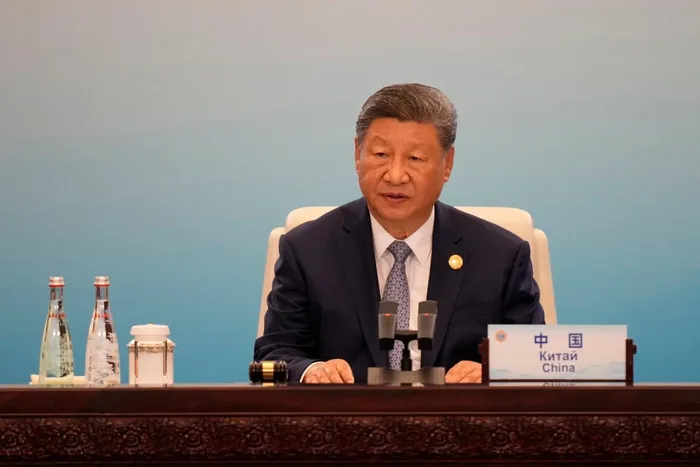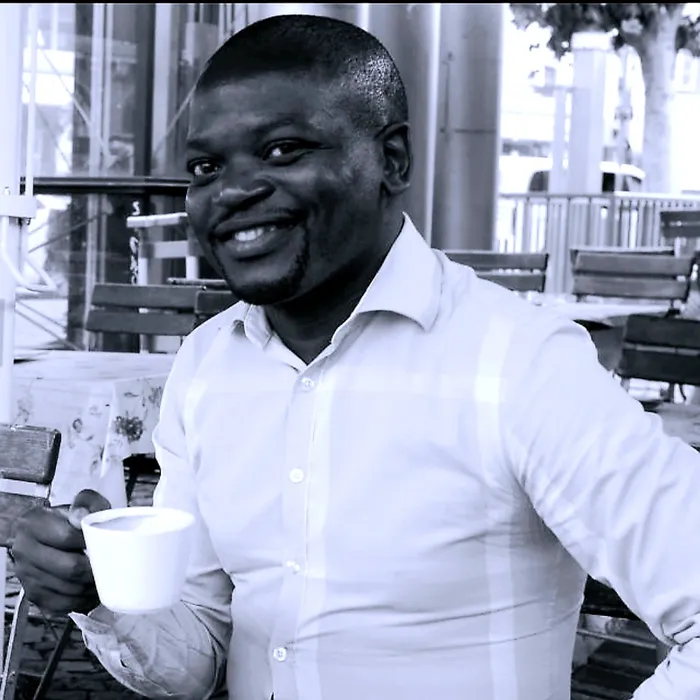
Chinese President Xi Jinping stated in the second volume of "Xi Jinping: The Governance of China," "War is like a mirror; looking into it helps us better appreciate the value of peace."
Image: Suo Takekuma / AFP
On 3 September 2025, China will hold its 80th World War2 Victory Day commemoration. 26 Heads of State and government and international dignitaries will grace the occasion to commemorate the sacrifices of the Chinese people in fighting and ending one of the darkest and most devastating moments of world history.
While the world has experienced relative stability since the end of WW2, new violent conflicts, undeclared economic wars, pandemics, and global crises have plunged the world into uncharted uncertainty characterised by global geopolitical polarisation.

Gideon Chitanga is a Postdoctoral Researcher at the Centre for Africa-China Studies, University of Johannesburg.
Image: Picture: Supplied
As expressed by President Xi Jinping in the second volume of Xi Jinping: The Governance of China, "War is like a mirror. Looking into it helps us better appreciate the value of peace.
"We must learn the lessons of history and dedicate ourselves to peace."
More than any moment in world history, modern contemporary conflicts could trigger unprecedented nuclear conflagration, pandemics, and other socio-economic chaos never experienced before, upending any gains of modern human progress. With modern military technologies, any war on the scale of WW1 and WW2 could directly threaten human existence, hence world leaders must redouble their efforts to foster global peace and stability.
The West has traditionally commemorated the end of WW2 to honour the immense sacrifice of those who fought for freedom and democracy, to remember the millions who died in the conflict, and to learn from the horrors of war to prevent future global conflicts. However, in the context of contemporary lurch towards heightened global polarisation and unilateral behaviour by the US, it looks like the lessons of the devastation of WW2 have faded into mere faraway memories. We live in a precarious era teetering on the brink of global conflict and nuclear Armageddon.
Indeed, the US, Great Britain and the Soviet Union have dominated narratives of WW2, generally excluding and or downplaying the historical contributions of other nations to the defeat of fascism and the emergence of post-WW2 peaceful coexistence. Such narratives have also fuelled historical distortions about when the war started. Emerging historical facts render credence to the fact that the Chinese liberation struggle against the Japanese invasion in 1937 marked the beginning of WW2.
China has received far less credit for its role in the Pacific theatre than the United States, Britain or even the Soviet Union, which only joined the war in Asia in August 1945. The Chinese contribution was pushed aside soon after the conflict, as an inconvenient story in the neat ideological narrative of the Cold War. The capitalist liberal West could not fathom standing together as equals with a communist giant which had immensely contributed to the defeat of fascism, hence China fast went from wartime ally to a giant wartime threat, marking the ideological roots of Sinophobia.
China was the first country to enter what would become the WW2. There is consensus amongst historians to the fact that WW2 began on July 7, 1937—not in Poland or at Pearl Harbor, but in China.
Together with Great Britain, the United States, and the Soviet Union, which formed the core of the "Grand Alliance" against the Axis powers, China played an important role in defeating fascism. Historians like Ranna Mitter have asserted that had China surrendered in 1938, the entire trajectory of WW2 would have changed, and with it world history. The sacrifices and successes of the Chinese people in holding the Japanese army at bay strongly account for the victory of the Grand Alliance in ending the war in its favour.
The then American President, Franklin Delano Roosevelt (FDR) considered China to be one of the "four policemen" of the post-WW2 world order, along with the Soviet Union, the United Kingdom, and the United States. Indeed, China became a member of the UN Security Council. However, while the West, under the leadership of the US, would seek to forge the post-WW2 hegemonic world order, Beijing has tirelessly worked towards a more inclusive, just and equal global order respecting the self-determination and national sovereignty of all nations as the foundation of global peace.
China unshackled herself from Japanese, British, French, Dutch, and American colonialism, while fighting against fascism, setting an example of the possibility of liberation, freedom, peace, and development for other nations. Its simultaneous contribution in defeating fascism and colonial imperialism set an example for other nations that faced the burden of colonial occupation during this period.
Many African liberation movements did not only benefit from Chinese solidarity and material support during their liberation struggles, but also learned a lot from the history of the sacrifices of the Chinese people during their struggle for self-determination, national sovereignty, and rapid modernisation.
While many African leaders will be in Beijing for this occasion, it will be crucial for them to reflect on the memory of the Africans who participated in the war, some of whom returned home to provide much-needed leadership during the African struggles for political and economic liberation.
Many Africans played a vital, multi-faceted role in the WW 2, with over a million soldiers and civilians mobilised by Allied colonial powers to fight in major campaigns across Africa, Europe, and Asia, from North Africa and Burma to the Italian campaign. Africans served in colonial British, French, and Belgian armies as soldiers, labourers transporting supplies, building infrastructure, and providing essential logistical necessities. African soldiers fought on battlegrounds in the Middle East, India, Myanmar, and the Pacific Islands.
Many of them were drawn from colonial Nigeria, Ghana, Kenya, and the Gold Coast (now Ghana), and French colonies like Senegal, Chad, and Morocco. North Africa became a major theatre of World War 2.
At the end of WW2, Many Africans returned home, but others were wounded or killed. The former colonial powers have only symbolically recognised the role of African soldiers during WW2 in defeating fascism and engendering global peace.
Although Western powers provided some compensation for services rendered during the war, much of it was insignificant. African veterans of WW2 returned to their homelands unrecognised, unpaid, and discriminated against. As bad as their experiences were, they inspired a zeal to contribute to the growing nationalist movements that would accelerate the struggle for independence across the continent.
As African leaders join the Chinese people in commemorating their contribution to global peace, they must honour the memories of our people who sacrificed their lives for a peaceful and prosperous world.
The commemorations in Beijing should equally remind world leaders that war causes huge destruction, and honour the sacrifices of those who gave their lives by building a global society rooted in peaceful co-existence and mutual respect.
The path of unilateral coercion is averse to shared global prosperity. As we learn from the history and sacrifices of the Chinese people, the global community can benefit more from mutually beneficial peaceful political and socio-economic relations. Maintaining peace and respecting the interests of other nations is immensely important for trade, economic growth, and collaboration in addressing global threats.
For its part, China has emphasised its readiness to work with the international community to jointly uphold the post-war international order, defend international fairness and justice, and promote the building of a community with a shared future for humanity. Indeed, world leaders must unite in defending the outcomes of the victory in World War II, uphold international fairness, justice, and practice true multilateralism, towards building a community with a shared future for humanity
Gideon Chitanga, PhD, is a Political and International Relations Analyst